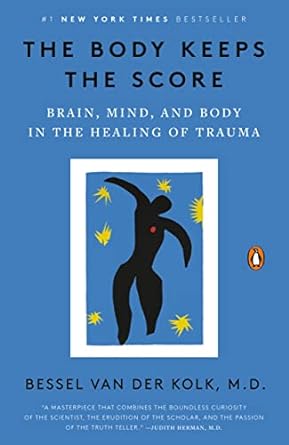Definition:
One of these issues is emotional delay, which occurs when a specific emotion takes several hours or even a day to catch up with you. For instance, you may have automatically said yes to your boss or partner in a moment but gradually realized you feel angry or disappointed later. This delay in emotion can result from childhood trauma, issues of dissociation and hypervigilance. Childhood trauma survivors may struggle with not being fully present in their bodies and emotions in real-time, leading them to live in a anxious place.

Causing:
Children who grow up in trauma tend to dissociate themselves from their emotional body and become hypervigilant, always watching out for what the adults are doing or what they need. They are not attuned to their own emotional needs and tend to leave their emotions deep underground.
So there’s the event, then there’s you in the present, and then there’s the emotions kind of catching up to you in the present. Let’s say your boss or your partner asks something of you in the moment, and in that moment you automatically said yes. And the day goes on, and then gradually you start to feel a pain of anger or a little bit of an escalation, and finally the emotion is like, wait a minute, was I just taken advantage of?, or it could be that you saw something ugly earlier in the day and then later it catches up with you, like something you saw on the street.
Or if someone tells you that they can’t make a commitment that they have made with you and then you’re in the moment, you’re like, don’t worry about it, it’s fine, and then later you feel really let down, really disappointed. This feels like kind of an escalation of emotion that you weren’t in touch with at the time of the event earlier in the day, and it just simply catches up to you. You’ll really know about this if you’ve ever gotten a rush of buildup of emotion that you can’t quite place, and then you realize it was about that earlier interaction.

Coping:
To address emotional delays, it is recommended to practice discussing emotions when they come up with safe people. Additionally, acknowledging that the inner child is catching up to the event that happened earlier and exploring daily inner child dialoguing, which is journaling with your inner child, can also help. It is essential to become aware of what is going on with yourself and become a good parent to yourself. You can also join a group or find a therapist if possible to discuss your emotions in the moment around safe people. While we should all be getting this support from our families, it is not always possible.

Reading Material:
I recommend reading a book called ‘The Body Keeps the Score’ that focuses on how traumatic experiences can affect our mental and physical health. Dr. Bessel van der Kolk, the author, uses real-life stories and scientific research to explain how trauma can impact our emotions and physical well-being. The book also discusses the different ways to treat trauma and the importance of understanding how it affects us. By reading this book, you can learn how to recognize and manage trauma to help you heal and recover.
In the next article, we will talk about another type of difficult experience that can affect us in similar ways. Remember to be kind to yourself and be safe.

